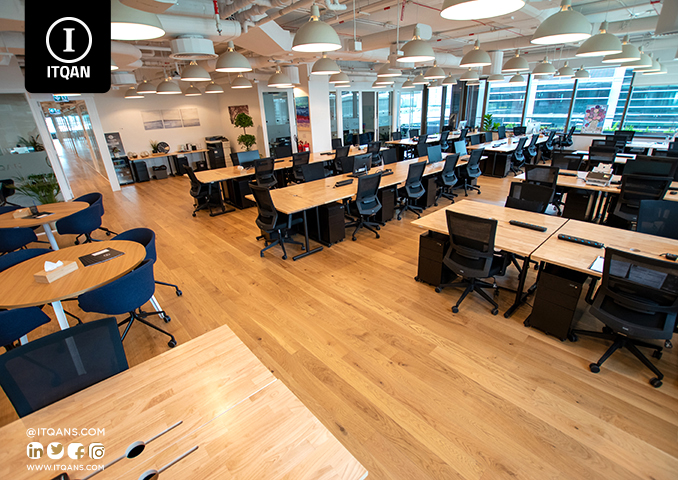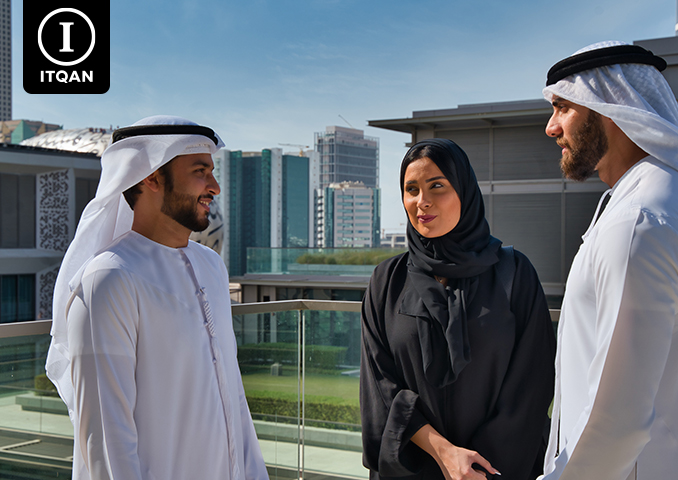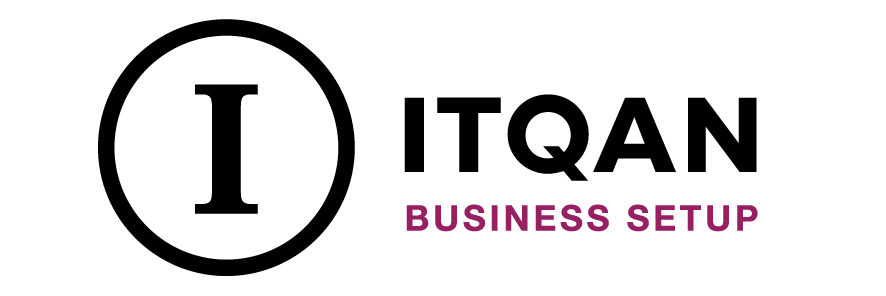
15 Apr Residence and investment in Dubai
Dubai is considered one of the leading cities in the world in terms of residence and investment. This modern city combines traditional civilization with modern innovation, making it an ideal destination to live, work and invest. In this article, we will explore the importance of living and investing in Dubai and the vast opportunities this evolving city offers.
In this context, we will discuss the factors that make Dubai attractive to investors and residents alike, such as the thriving economic environment, flexible investment legislation, and diverse cultural and entertainment life. We will also highlight the options available for residency in Dubai, whether permanent residency or investment residency, and discuss the tax benefits and advantages that businesses and individuals enjoy in this dynamic context.

Residence and investment in Dubai
Procedures necessary to obtain a residence visa in Dubai
To obtain a residence visa in Dubai, the following procedures are usually required:
- Obtaining sponsorship: You must have a sponsor in Dubai, whether it is an employer or another person who pledges to sponsor and support you during your stay in the emirate. The sponsor can be the owner of the company you work for or a company that employs you.
- Submitting a visa application: You must submit your visa application to the competent authority in Dubai, which is usually the Immigration and Passports Department or the Dubai Practical Affairs Department. This requires filling out an application form and submitting the required documents, such as a valid passport, a personal photo, a copy of the employment contract or appointment letter, a health certificate, and a police certificate from the country of origin.
- Health examination: You may have to undergo a health examination at a center approved by the competent authorities in Dubai. This is done to check that there are no contagious diseases or health restrictions before granting the visa.
- Issuing a visa: After completing the procedures and submitting all required documents, your application will be reviewed by the competent authority. If your application is approved, a residence visa will be issued.
- Issuance of residence card: Once you arrive in Dubai, you must receive your residence visa and convert it into an official residence card. You will need to provide some documents, such as a copy of your passport, a photo, fingerprinting and payment of the card issuance fee.
Types of visas available for residence in Dubai
There are several types of visas available to reside in Dubai, and these visas vary depending on the purpose of residence in Dubai and the applicant’s status. Here are some common types:
- Tourist visa: It is granted to individuals wishing to visit Dubai for tourism and entertainment purposes, and is considered valid for a specific period, usually ranging from 30 to 90 days.
- Family Visit Visa: Granted to family members to visit a family member residing or working in Dubai, and the validity period varies according to government rules and regulations.
- Work Visa: Issued to people who want to work in Dubai and may be temporary or permanent depending on the type of work and the hosting company.
- Student visa: Issued to students wishing to study in educational institutions in Dubai, and the validity period of the visa depends on the period of study.
- Investment Visa: Issued to people who want to invest in Dubai, and this visa can be linked to a specific financial investment condition in the emirate.
- Temporary Resident Visa: Issued to individuals who wish to reside in Dubai for a specified period for specific purposes such as medical treatment or family visits.
- Round-trip visa: Issued to workers who work in Dubai for a temporary period and are allowed to return to their home countries and back again during the validity period.
- Temporary Resident Visa: Issued to people who plan to stay in Dubai for a long period for work, study or investment purposes.

Investing in Dubai
The cost of obtaining a residence visa in Dubai
The cost of obtaining a residence visa in Dubai varies based on several factors, including the type of visa and the length of stay required. There are several types of visas that can be obtained in Dubai, such as work visa, short visit visa, student visa, investor visa, and others.
To obtain a residence visa in Dubai, it usually requires multiple costs including government fees, administrative fees, health insurance, etc. It is recommended to check the exact requirements and costs for each type of visa from official sources such as the Dubai Immigration Department or approved websites.
Furthermore, it should also be taken into consideration that the cost of obtaining a residence visa in Dubai may vary depending on the agency or company you use to manage and facilitate the visa process. There are specialized consulting companies and agencies that provide support and consulting services to individuals and companies in the process of obtaining visas and facilitating procedures.
Steps to invest in Dubai
Here are general steps to invest in Dubai:
- Defining the idea and feasibility study: Before starting any investment process, the investment idea must be determined and a feasibility study conducted to evaluate the success of the idea and its financial profitability.
- Choosing the type of company and activity: Decide on the type of company that suits your investment, whether it is a sole proprietorship, limited liability company, partnership company, or other, and determine the economic activity you intend to practice.
- Company Incorporation: Establish the company under the laws and regulations of Dubai and the UAE, and determine the company structure and required capital.
- Obtaining licenses and permits: Obtain the necessary licenses and permits from the relevant authorities in Dubai to conduct economic activity, such as municipal licenses and building permits (if required).
- Search for a location for work: Search for a suitable location for work, whether it is in a free zone, Dubai Media City, or any other location that suits your business.
- Marketing and building relationships: Market your services or products and build business relationships in the local and global market, and use digital marketing tools and social networks.
- Compliance with Laws and Regulations: Ensure that local and federal laws and regulations in Dubai and the UAE are adhered to and respected at all times.
- Business development and follow-up: Continuously develop your business and follow up on financial performance and daily operations to ensure continued success and achievement of set goals.
Advantages: Obtaining a commercial license in Dubai without a sponsor
Obtaining a commercial license in Dubai without a sponsor provides many advantages and benefits to investors, the most prominent of which are:
- Ease of procedures: Obtaining a commercial license without a sponsor allows for easier and more convenient procedures, as the process does not require the provision of a sponsor or local partner.
- Full Control: Obtaining a business license without a sponsor allows investors to have full control of their business without interference from local partners.
- Freedom to choose activity: Investors can choose any business activity that suits them without the restrictions that some companies may impose when there is a sponsor.
- Flexibility in work: Investors can determine work schedules and work methods that suit their needs and personal circumstances.
- Commercial confidentiality: Investors can enjoy commercial confidentiality as they can not disclose business details and management composition of the company.
- Rapid expansion: Startups can expand quickly without delays or restrictions imposed by the process of obtaining a sponsor.
- Flexibility in profit distribution: Investors can determine the mechanisms for distributing profits and dividends without adhering to fixed ratios that may be imposed by local partners.
In conclusion, if you are looking to reside and invest in Dubai, Dubai stands out as an ideal destination. With its strategic location and advanced infrastructure, Dubai provides a distinguished living environment and wide-ranging economic opportunities.
Through its open and flexible economic policies, Dubai offers investors limitless opportunities for growth and prosperity. It also provides diverse residency systems and flexibility in obtaining visas, making it an ideal destination for investors and residents alike.
In short, Dubai combines the appeal of the modern world with the vastness of traditional natural and cultural spaces, making it a unique destination that gives you the opportunity to live and invest in an exceptional style.
The most frequently asked questions about investing in Dubai
What are the main sectors to invest in in Dubai?
This includes real estate, tourism and hospitality, technology, creative industries, and financial services.
What are the basic procedures to start investing in Dubai?
The basic procedures include choosing the investment activity, obtaining the necessary licenses, establishing the company, and opening a bank account.
What are the investment opportunities available in the real estate sector in Dubai?
Investment opportunities include purchasing commercial or residential real estate for rent or sale, and investing in new real estate projects.
Can I invest in financial markets in Dubai?
Yes, investors can invest in stocks, bonds and mutual funds on the Dubai Financial Market.
What tax incentives are available to investors in Dubai?
Tax incentives in Dubai include no personal or corporate income taxes, and no VAT on goods and services.
What challenges may investors face in Dubai?
Key challenges can include intense competition, changes in government policies, and fluctuations in global markets.



